Final Fantasy XIII (PC) Review
By Leo Epema  25.12.2017
25.12.2017
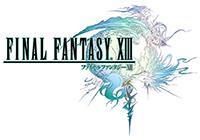
Final Fantasy XIII starts with an action-packed cinematic opening on a train filled with prisoners. It's here that two of the protagonists are introduced. Claire Farron, AKA "Lightning," was part of the army of this game's universe, but she's now fighting her former colleagues. Sazh Katzroy is left a bit of a mystery for now. It doesn't take long before an introduction to the more futuristic, mechanical universe begins. The introductory fight pits Lightning against a mechanical enemy to explain the combat basics.
The combat is very similar to those of previous instalments. Characters have an ATB bar that needs to fill before they can attack. They can then "auto-battle," which is a feature new to Final Fantasy XIII. If the "scan" command or a few attacks are used, enemies' weaknesses and immunities are automatically taken into account. Auto-battle then selects the most effective attacks to use. Many fans have criticized this as rendering battles "dumbed down," but that's not quite true. Final Fantasy battles have always been a matter of using scan to figure out enemies' weaknesses, and then exploiting them with the same one or two attacks. Occasionally heal the weakest party members and make sure attacks aren't used at the wrong time, and that was it. Auto-battle is a welcome change that makes the stagger and paradigm shifting system retain its pace. Choosing attacks yourself is also still possible.
Another minor but interesting addition is that pre-emptive strikes now also put enemies on the brink of being staggered. Staggered means enemies take much more damage and can be juggled by Commandos as a way to turn the tide. If attacks are timed well and the right roles are used, some opponents can be juggled for a while. The key to staggering is using the Ravager role to deal magic damage and raise the stagger gauge. The more magic attacks performed, the more it raises, but the faster it depletes. Commandos do more damage than Ravagers and stop the depletion, but stagger much slower, meaning it's a great trade-off. It's a nice risk-reward system that makes timing and paying attention to the enemy's attack phases much more relevant.
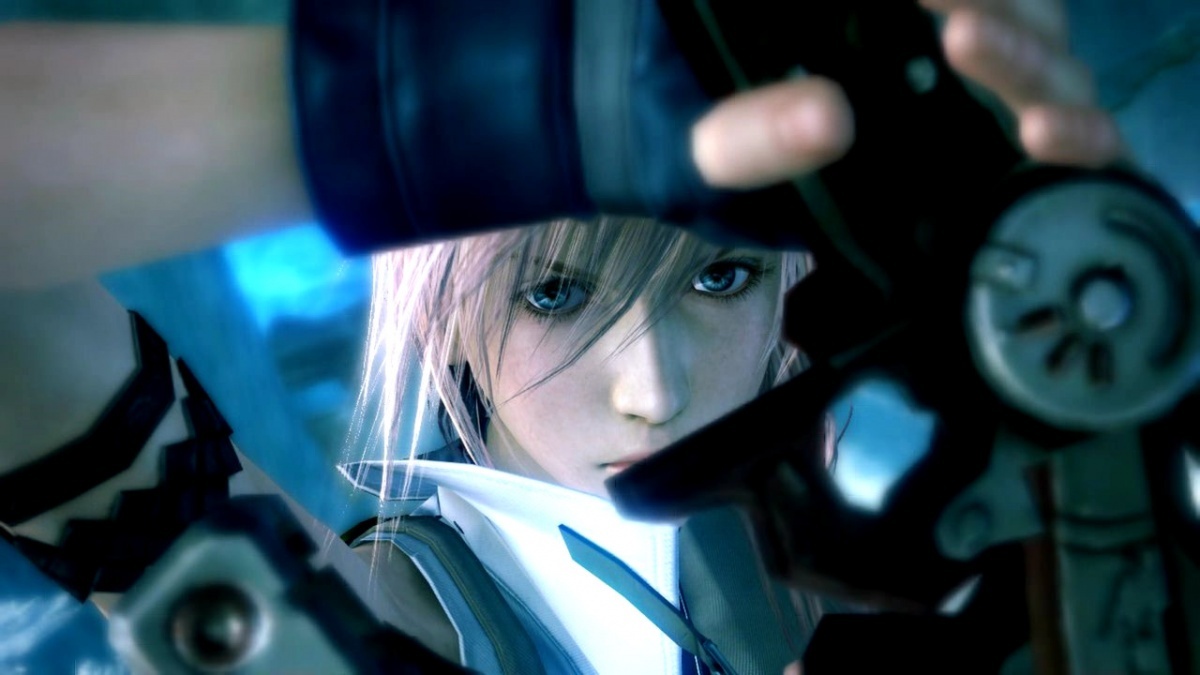
In addition, attacks now consist of chains. One or more attacks can be cancelled by prematurely performing the attack chain. This can be useful, for example, if an enemy has broken off from a group, but an area-of-effect spell was still queued up. Cancelling will perform the first one (or more) attacks to defeat or interrupt them. This is an excellent addition that makes it addictive to try to finish battles as quickly as possible, which you get scored for. If two attacks are queued up, but AI party members are also about to attack, they can cause the controllable character to waste a move on an already dead enemy. Cancelling turns battles into micromanagement of enemies' health bars and stagger bars. It adds some tactics to combat other than the series staple of "do/don't use this attack when the enemy is in this phase or attack." Enemies still do that, but this is a nice addition to make battles tougher to ace.
The tactical part of combat doesn't lie in choosing attacks. It lies in knowing when to switch the role pre-sets assigned to party members. This is known as paradigm shifting. That doesn't mean it's mandatory to make each character a jack-of-all-trades, though. No, each character has their own speciality, and often lacks important attacks in other roles. Most of them are good at two roles, which means that depending on which party members are usable in the story, they need to switch roles at some point. It's wonderful to paradigm shift and manage when enemies are staggered and how much damage they receive. It can do without the contrived pseudo-tactics forced by party split-ups.
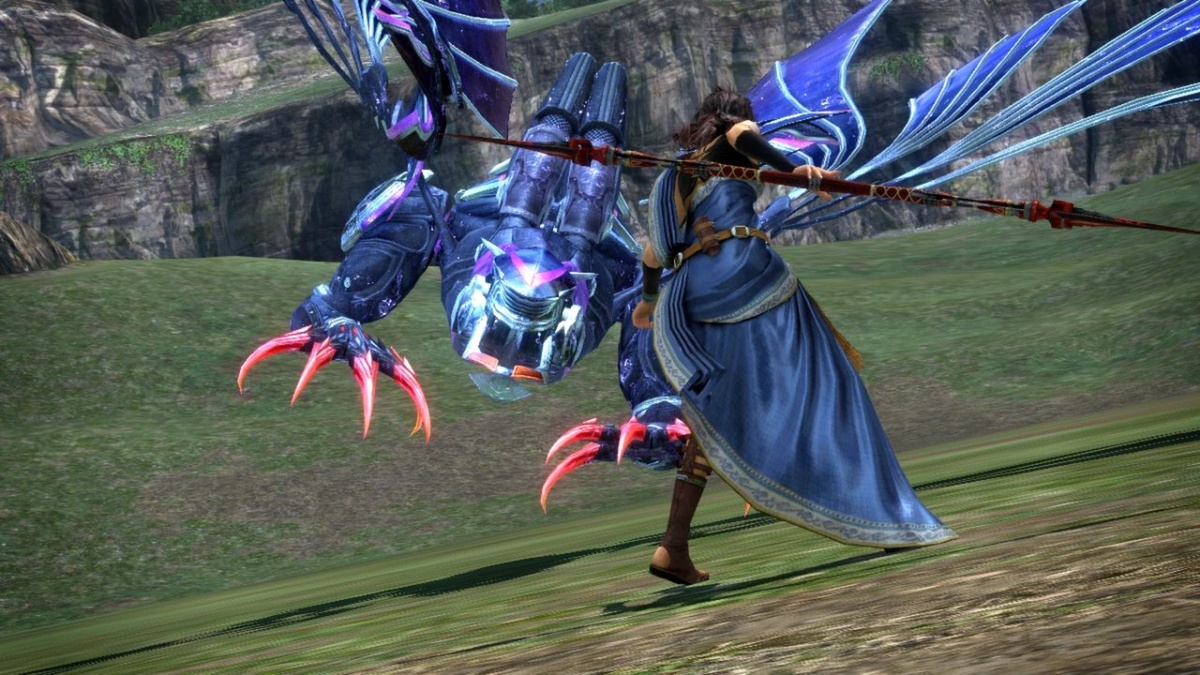
When it comes to role-playing, Final Fantasy XIII does fairly well. For each character, there are a few sets of weapons with unique abilities. Lightning, for example, can get a Peacemaker gunblade, which provides the ability to raise a team member from the dead. Another gunblade greatly increases her magic and melee power, while decreasing the speed at which she gains a turn. These abilities mostly improve characters' efficiency in certain roles, rather than fine-tuning those roles. It's also not as comprehensive as the system of Final Fantasy X, for some reason.
Weapons can be upgraded with mechanical parts gotten from enemies and containers. Upgrading increases the weapon's power and improves its special effect. While that's great, the process is tedious. First, organic parts of monsters must be used to create an experience multiplier: the higher quality (rarer) the item, the more multiplier points it provides. Once the maximum multiplier is reached, mechanical parts are used to level up the weapon. To maintain the multiplier and level it up as fast as possible, it's necessary to use as much as possible of one type of high-quality mechanical parts all in one go.
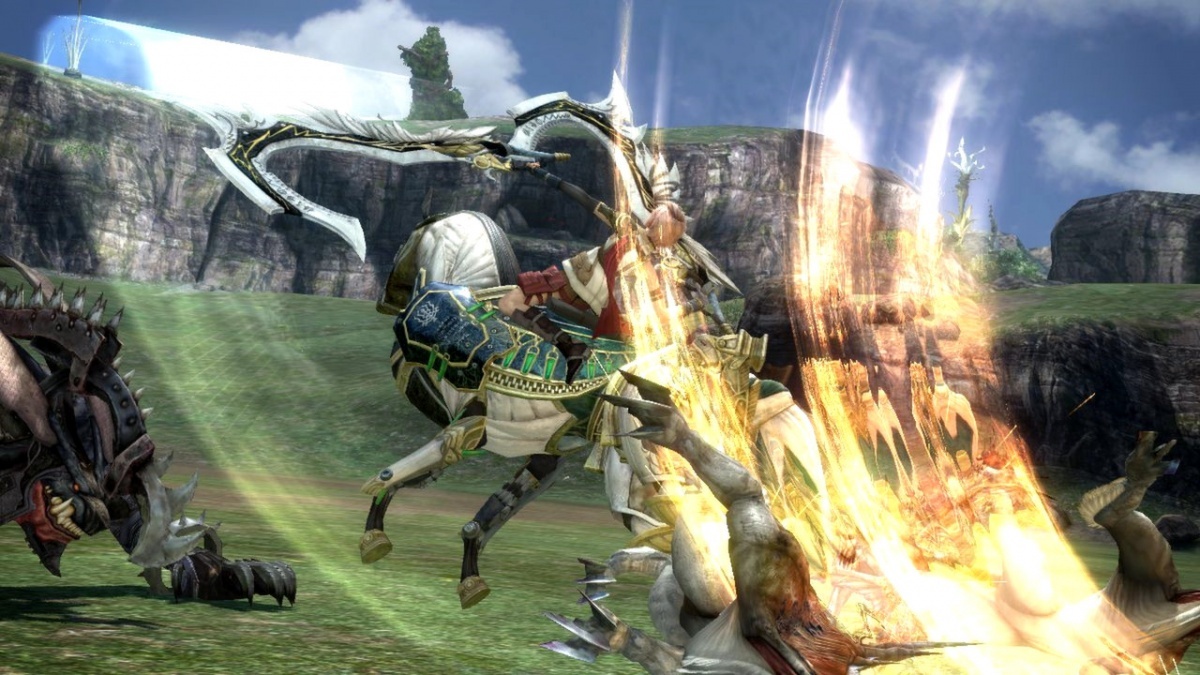
Upgrading necessitates grinding, which is a terrible choice for a game that's so linear. Grinding in the same environments over and over is very grating and reduces replayability. That said, upgrading without a multiplier is an option. It's also a shame that there are plenty of weapons with unique effects that can only be found once certain story progression has been made, causing new shops to be opened in the menu. While it makes for a sense of progression, it's also very limiting for a long time. It's disheartening to see that a new, more useful weapon is suddenly purchasable, when the previous weapon had just been upgraded after some grinding.
Final Fantasy XIII could've been the best instalment in the series, believe it or not. Its cast is genuinely believable and arguably deeper than those from most other instalments. Unfortunately, out of all things, its linearity is what made them hard to stomach. They are deep, but at the same time one-sided. Sometimes that's because they don't have much chemistry. That may be due to the game's empty environments; they allow for characters to call out each other's problems and grow as a result. While that allows them to bond to a degree, it also makes them hard to love for the player. A more vibrant world would've alleviated this.
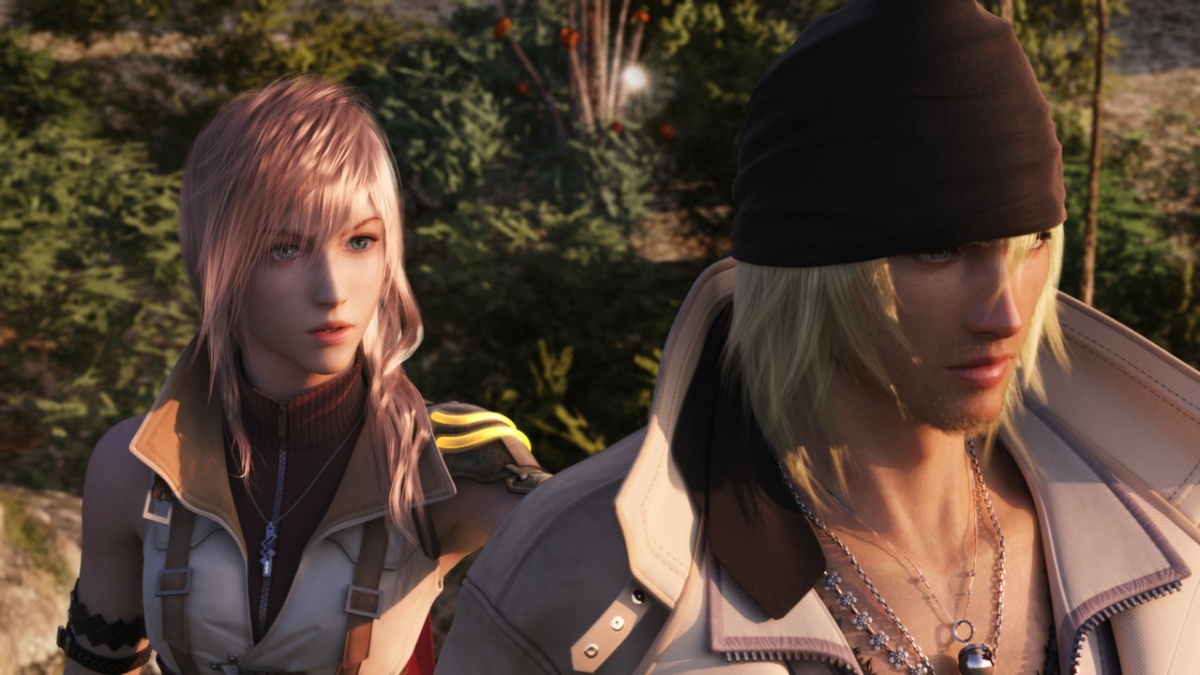
Here's the thing: the main characters are flawed people, and the story revolves around the flaws. This means that the more they grow, the more character they lose. The lack of a vibrant world for them to interact with doesn't help. The further the story goes, the more one wonders: yes, the main characters are shaped by the events and people surrounding them, but who are they beneath that? Who are they, except characters that do everything for plot reasons?
In the end, the plot about l'Cie needing to fulfil their "Focus" (or destiny) necessitated the linearity. The linearity in turn made it impossible to catch a breath from the plot. That's a massive flaw, considering the environments lack interesting places and quests - they're filled only with enemies. The linearity can render everything a slog, just waiting for the story to advance.
Ironically, with FFXV going down a more action-oriented path, this instalment was the last one to feel like Final Fantasy. FFXIII became an unlucky number not because it's bad, but because what came after it tried to reinvent the wheel and failed.
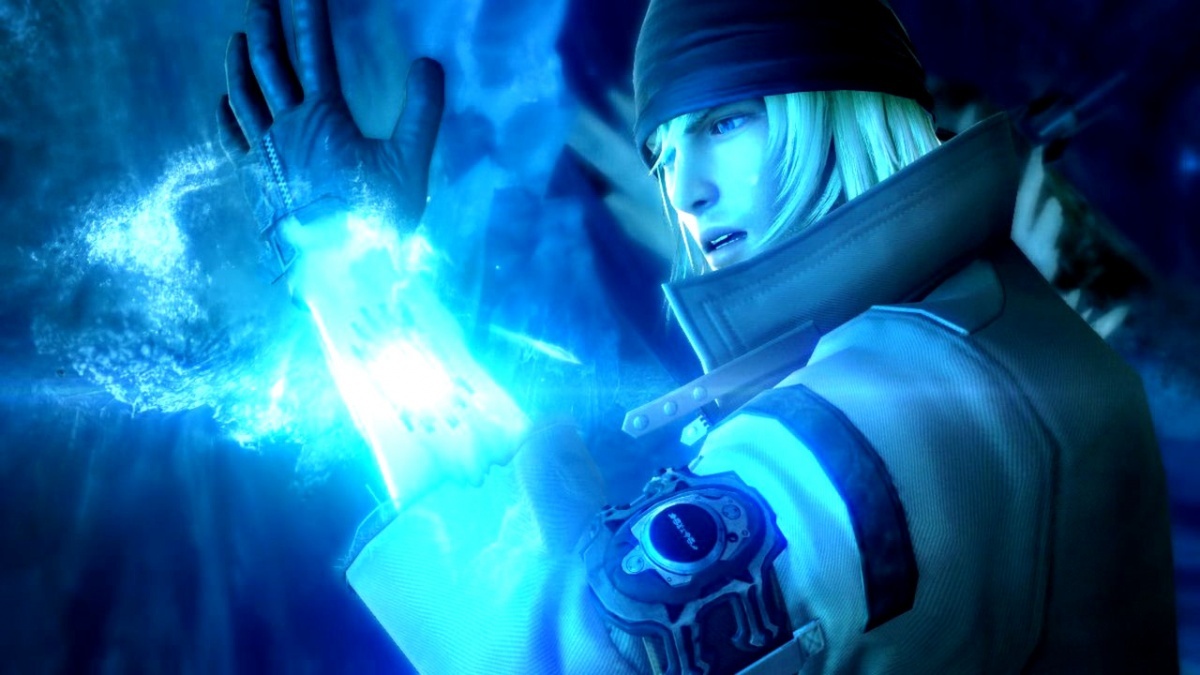
Cubed3 Rating
Very Good - Bronze Award

Final Fantasy XIII is a mixed bag. Much of its soundtrack is too uniform for the impressive environments. The characters, while deep, have little to talk about except their flaws, making the story tedious. It wouldn't have been a problem if the characters could get off the beaten, linear path. The pacing is great and the combat is a tactical step up from the best instalments. The stagger bar and paradigm shifting are genius additions. While auto-attack is a thing, it's possible to take the reins to do attacks that aren't "efficient" or necessary. It's like a more intricate and enjoyable Final Fantasy X. It's just that the sometimes annoying characters and linearity blemish it. Still, it's enjoyable, and fans should pick it up.

![]() 7/10
7/10
![]() 0
(0 Votes)
0
(0 Votes)
 Out now
Out now  Out now
Out now  Out now
Out now  Out now
Out now Comments
Comments are currently disabled

 Sign In
Sign In Game Details
Game Details Subscribe to this topic
Subscribe to this topic Features
Features





 Top
Top

